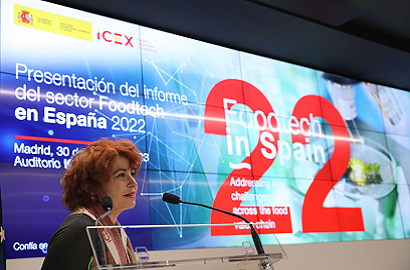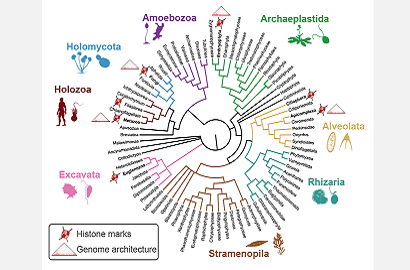Foodtech sector investment in Spain grows more than 9% in 2022

The third report on the sector in Spain has been presented: “Addressing new challenges across the food value chain”
ICEX has presented the conclusions of the third report on the Foodtech sector in Spain. Forming part of a networking event, a debate took place with some of the ecosystem’s leaders on the challenges and strategy for internationalisation of the sector. The Foodtech sector is an essential lever for the Spanish food industry, and a profound transformation of the food industry taking place as a result of the impact of new technologies. This means the foodtech ecosystem is being called on to play an essential role in this process in the coming years.
Thus, in a context of global downturn, investment in the Spanish Foodtech sector grew by 9.38% in 2022, amounting to 268 million euros and without including the Glovo effect, according to the report promoted by ICEX Spain Trade and Investment, “Addressing new challenges across the food value chain”. But not only has it been capable of attracting significant investment transactions with leading national and international actors, but there has also been a considerable increase in the number of operators in the ecosystem: 412 startups, as opposed to 407 last year, and more than 30,000 companies in food transformation, as well as 50 specialised universities and 20 cutting-edge technology centres involved.
These are just some of the conclusions drawn from the report on Spain's Foodtech sector 2022, an essential lever in the Spanish food industry.
This third report also highlights that in order to consolidate the ecosystem, it is vital to have high technology skills and great strength, which translates into patents, trade secrets and registered trademarks. 32.9% of the 412 Spanish startups do in fact possess a patent for their technology, and 29% have a trade secret, which endorses the robustness of Spanish companies in the sector.
Moreover, the percentage of startups that developed their own technology continued to grow during 2022. This meant a spectacular increase in the use of technologies, mainly startups that use artificial intelligence (AI), leaping from 28.21% to 40.79%, and gaining 12 percentage points with respect to the previous year.
The sector’s contribution to the circular economy is worthy of mention, providing technologies that allow the revaluation of by-products, thus reducing waste and creating new uses ranging from packaging to ingredients.
ICEX, a dynamic agent
ICEX CEO, María Peña, opened the presentation of the report by underlining that it is a “fundamental sector for attracting capital and investment in startups”. Peña highlighted that “it has become a key area with extremely high added value in any strategy seeking knowledge and the expansion of our ecosystem of innovative and technology entrepreneurs”, and she underlined “the sector’s commitment to sustainability and making this attribute their mainstay”.
The CEO also explained that “there is no promotion strategy that isn’t based on knowledge,” and in this regard, “This report, in the framework of our alliance with Eatable Adventures, is undoubtedly a basic element of this knowledge”.
To close her address, María Peña wished to make it clear that “if Spain continues to be a Spain Food Nation, it will be because it is also a Spain Foodtech Nation”.
ICEX has a wide range of instruments to support the Foodtech sector: in addition to providing strategic information in key countries, it also has an Invest in Spain area, in addition to a special section on the Foods and Wines from Spain (FWFS) portal, in order to give it maximum international visibility and convert it into the flagship of our food industry.
ICEX also develops the following work areas to strengthen our overseas projection as Spain Foodtech Nation:
- Organisation of webinars to present the Spanish sector in strategic markets, such as Japan, Israel or Singapore.
- Promotion of alliances with all ecosystem agents: agreements with tech accelerators, hubs and centres in their own programmes (Spain Foodtech by Eatable Adventures, Open Innovation programmes by KM ZERO or CNTA)
- Design of programmes intended to strengthen our startups and scaleups in critical ecosystems, such as the Netherlands, with the third call for the DESAFIA FOODTECH NL programme, and DESAFIA Tel Aviv, for purely digital companies.
- Development of support programmes for international investors in our industry, such as INNOVAINVEST, which has already closed some important transactions in 2022, such as the Biotech foods transaction, with a participation by JBS amounting to more than 750,000 euros.
Direct access to the report:
Foodtech in Spain: Addressing new challenges across the food value chain (investinspain.org)




